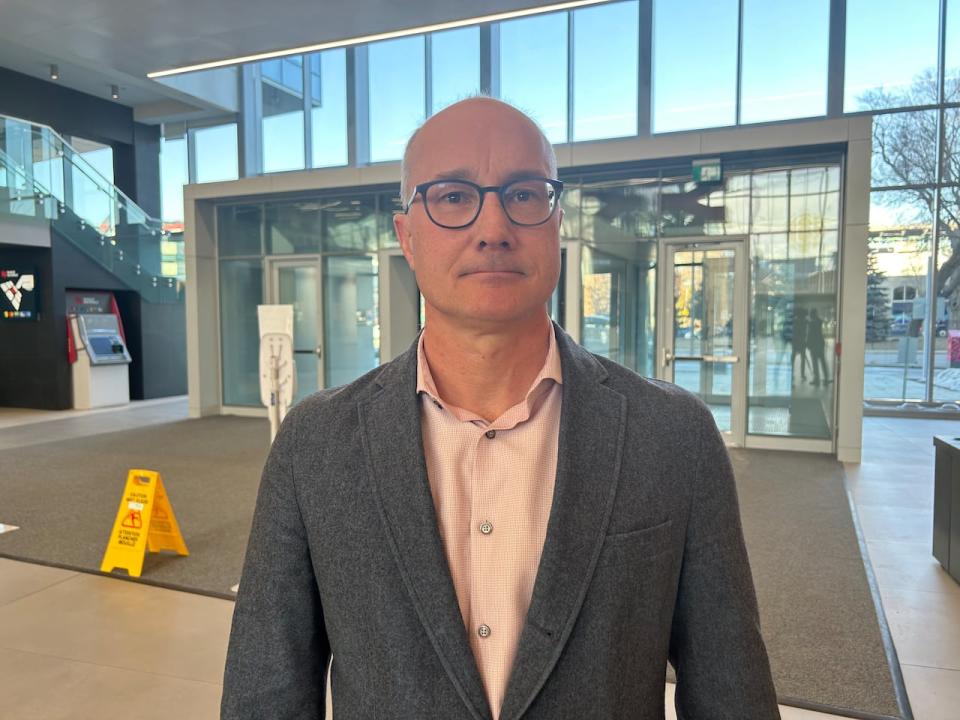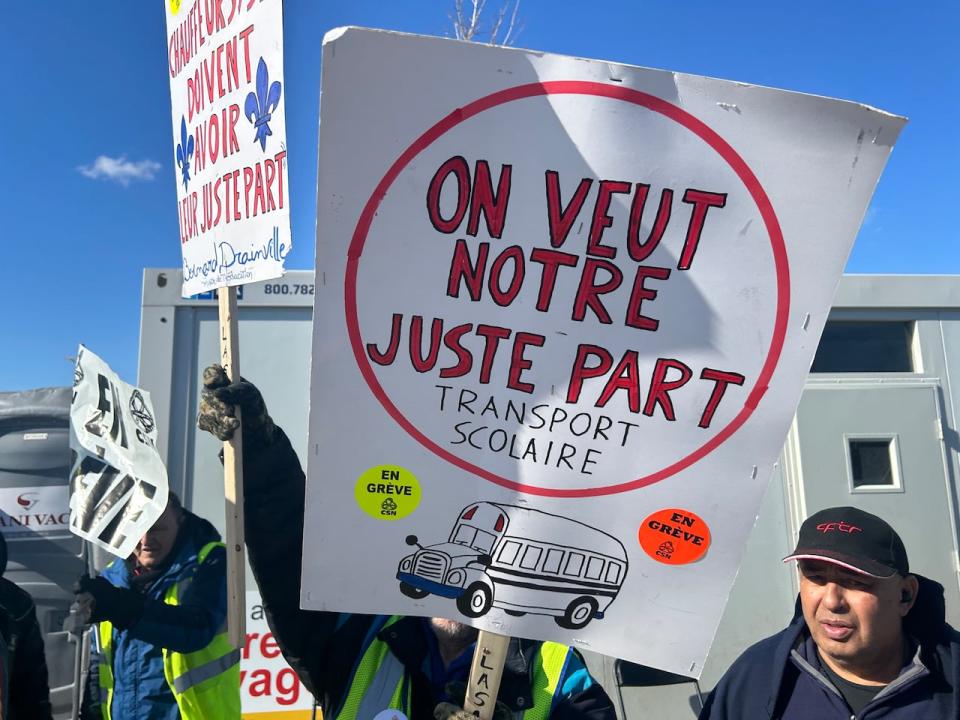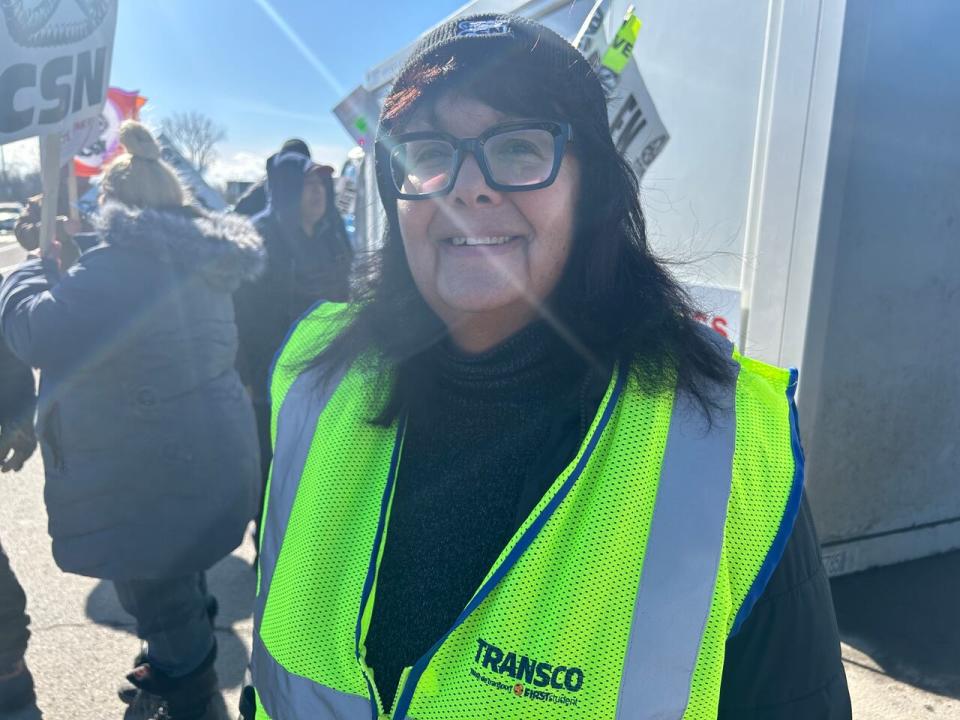Almost 4 months into Montreal school bus strike, frustrated parents want government action

Sacha Nelson-Masse says there's no end in sight for frustrated parents who, like him, have been struggling for months to get their kids to and from school.
"It's a lot of juggling," he said. "I mean every day we kind of have to figure out our schedules."
The school bus strike in Montreal is about to enter its fourth month, yet Nelson-Masse says parents have largely been kept in the dark.
"It seems like nothing is moving very much and we barely get any news of what's going on," he said.
Some 350 drivers with Autobus Transco have been on an unlimited strike since Oct. 31, 2023. The bus service provider says that has affected more than 15,000 students on the island of Montreal.
Parents are now urging Education Minister Bernard Drainville to intervene.
"I ask him [to act], to put his nose to the grindstone, to try to speed up the negotiation," said Anne-Laure Piaraly.
Kathleen Wynd, whose child attends a school far from her home because of his special learning needs, is also fed up and wants action.
"I'm really exasperated. I can't wait for this to be resolved. I can't believe it's gone on this long and no one's doing [anything]."
Government ready to appoint arbitrator
Transco has long proposed that the company and the bus drivers' union, the Syndicat des travailleuses et travailleurs de Transco–CSN (STTT–CSN), go to arbitration to resolve the dispute.
"We're ready on our side to put everything in the hands of the adjudicator saying, 'you will be deciding for us,' so we are saying to the union, 'why don't you say yes to that?'" said Transco spokesperson Claude Breton.
That option would mean the immediate resumption of school bus transportation while the process is settled by a neutral third party.

Transco spokesperson Claude Breton wants to put the dispute into the hands of an arbitrator in hopes of getting workers back on the job as soon as possible. (Kwabena Oduro/CBC)
Quebec Labour Minister Jean Boulet, who met with Transco and the union last week, said that's a good idea and he's prepared to appoint an arbitrator quickly.
But the STTT–CSN doesn't want to go that route.
"We don't need a third party into the conflict," said spokesperson and Transco bus driver Marcel Boudreau.
"All we need in fact is goodwill from the employer because we know that the money is there and we just want to get what we deserve."

Marcel Boudreau, a spokesperson for the STTT-CSN and a bus driver with Transco, says he doesn't want a third party to intervene. He's relying on the goodwill of his employer. (Kwabena Oduro/CBC)
Labour expert cautions against government action
The major sticking point in the negotiations is salary.
Barry Eidlin, an associate professor of sociology at McGill University with a focus on labour policy, says the cost of living crisis has been one of the biggest factors driving the uptick in strikes seen over the past year.
"We have this mismatch between rising worker expectations … and employers' expectations of what they're used to negotiating in collective bargaining agreements," he said.
"The agreements that used to pass muster five, 10 years ago are no longer going to cut it in 2024."

The major sticking point in the negotiations is salary. (Kwabena Oduro/CBC)
Eidlin cautions against the government stepping in to resolve these disputes because such intervention is often aimed at ending the immediate conflict without addressing the underlying issues.
"Forcing workers back to work ends up both undermining their Charter-protected right to strike but more practically speaking, doesn't resolve the underlying issues and just kicks the can down the road and leads to further problems," he said.
A more productive resolution, he says, would be to apply pressure on the employers to "weaken their intransigence" and get them back to the negotiating table.
With no end in sight for the bus strike, parents are looking at different ways they can put pressure on all the parties to come to a resolution, including holding a protest and keeping their kids at home for a day.

Frience Riendeau says some bus drivers who haven't been paid for almost four months have had to turn to food banks. (Kwabena Oduro/CBC)
Bus driver Frience Riendeau says she understands how hard the strike is for parents and students, but bus drivers are hurting, too.
"We don't have our salary, we're missing money, there's some [drivers] that go to food banks… it's very, very hard for us," she said.
School boards and service centres have announced a plan to reimburse families. The EMSB said parents will receive the first cheque of $7 per strike day, with some conditions, before March break.


